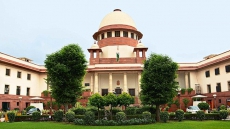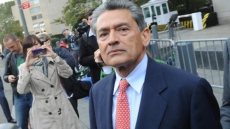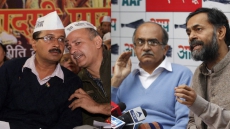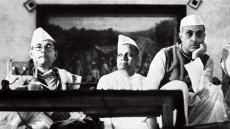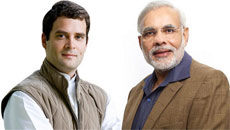Top police officers who undertook rare deterrent action against the killings on the streets of Delhi following the assassination of then prime minister Indira Gandhi on October 31, 1984 ran into a wall of disapproval from the police leadership, according to a new book.
Some of the most dramatic police action came from additional deputy commissioner Maxwell Pereira, who ordered firing outside Sisganj gurdwara on the morning of November 1.
One man was killed in the firing but that firing ended up saving the historic gurdwara. But what followed left Pereira shaken, Pereira tells journalist and author Sanjay Suri in the book “1984 - The Anti-Sikh Violence and After” (Harper Collins) being released on Tuesday.
"After the incident, I informed the control room immediately that I have opened fire and I have killed a person," Pereira is quoted as saying. "These are matters of record, these are matters of importance that have to be known. Especially if you have opened fire, you need to inform the control room. What troubled me was that there was pin-drop silence. There was no response coming from the control room."
Amod Kanth, then deputy commissioner for central district, is quoted as saying there was no direction from police headquarters on dealing with the imminent violence. Kanth, who ordered firm action in his district, says he was censured for it at a meeting at the police headquarters later.
"The discussion was very clear," he is quoted as saying in the book. "I was told that this was premature."
In another incident, an inspector from the Delhi Armed Police fired in the air to scare away attackers at Nand Nagri in east Delhi, Shamsher Deol, then deputy commissioner attached to the Delhi Armed Police, is quoted as saying. The inspector was told he would get into trouble for taking action. He immediately went on leave, not before buying three bullets from an army unit in Delhi Cantonment.
"He managed to replace the three bullets fired from the .303 rifle," Deol is quoted as saying. "He wanted to show he had actually never fired, he wanted to collect proof that all his bullets were intact. He was saying he had acted against the nation."

Assistant commissioner of police Keval Singh took early action against looters on the evening of October 31. Seeing the situation go out of hand, he asked for permission at 8.32 p.m. to open fire. That permission never came. Fifty minutes later, at 9.22 p.m., came a message that he was being taken off duty.
Suri argues that the signals were clear from top levels that the police action against looters and killers would not be welcomed. Such failure was ultimately ensured by "passive aggression" from Rajiv Gandhi, who succeeded his slain mother as prime minister, the book claims.
Suri puts together interviews, records and his own experiences as witness to make the case that the killing itself was actively organised by senior leaders from the Congress party - unchecked by the top leadership.
Rajiv Gandhi was sworn in as prime minister on the evening of October 31. Suri says his firmest action against the killing came at 5.30 p.m. on the evening of November 2 when he summoned then Lt. Governor P.G. Gavai and said all killings must end within 15 minutes. By then, almost all the killing was done, Suri says in his book.
Rajiv Gandhi did make speeches, but "the Sikhs of Delhi did not need to hear speeches on the right thing to do, they needed the right thing done", says Suri in the book. He says that Rajiv Gandhi "followed up with decisions that were guaranteed to deny justice later".
The first such was the order to cut short an inquiry into the killings by Ved Marwah, later the police commissioner. That inquiry was on the point of nailing top officers in an official record of widespread police failures.
It was Rajiv Gandhi who ended that inquiry, the book says. "It's inconceivable that the prime minister might open the newspaper one morning to find that some junior official had taken such a decision unknown to him."
The book argues that action against at least some of the guilty was still possible on the basis of two sets of records: one showing police awareness of the violence, and the other the failure to act on that awareness. Taken together these point to criminal negligence that is actionable under the Indian Penal Code, Suri argues.
Specifically, he says criminal prosecution against government-controlled Doordarshan is still possible for "holding the megaphone" to calls for murder. The book cites records to say that on its own admission Doordarshan broadcast that call 18 times, though Suri says people who watched television that morning say it was more than that. Prosecution must be launched to bring some official acknowledgment of massive wrongdoing by the government that led to the murder of 3,000 Sikhs in the city, the book says.
